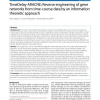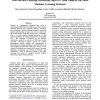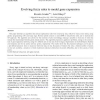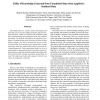221 search results - page 6 / 45 » Extracting and Explaining Biological Knowledge in Microarray... |
139
Voted
BMCBI
2010
15 years 2 months ago
2010
Background: One of main aims of Molecular Biology is the gain of knowledge about how molecular components interact each other and to understand gene function regulations. Using mi...
104
Voted
BMCBI
2006
15 years 2 months ago
2006
Background: Gene expression microarray data is notoriously subject to high signal variability. Moreover, unavoidable variation in the concentration of transcripts applied to micro...
118
Voted
AAAI
2007
15 years 5 months ago
2007
Analysis of postgenomic biological data (such as microarray and SNP data) is a subtle art and science, and the statistical methods most commonly utilized sometimes prove inadequat...
130
Voted
BIOSYSTEMS
2007
15 years 2 months ago
2007
This paper develops an algorithm that extracts explanatory rules from microarray data, which we treat as time series, using genetic programming (GP) and fuzzy logic. Reverse polis...
113
Voted
PST
2008
15 years 4 months ago
2008
Knowledge discovery systems extract knowledge from data that can be used for making prediction about incomplete data items. Utility is a measure of the usefulness of the discovere...




